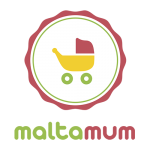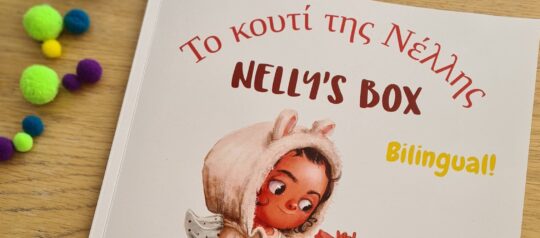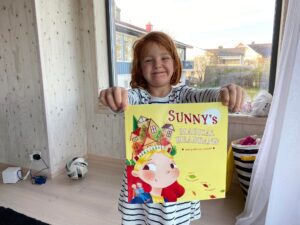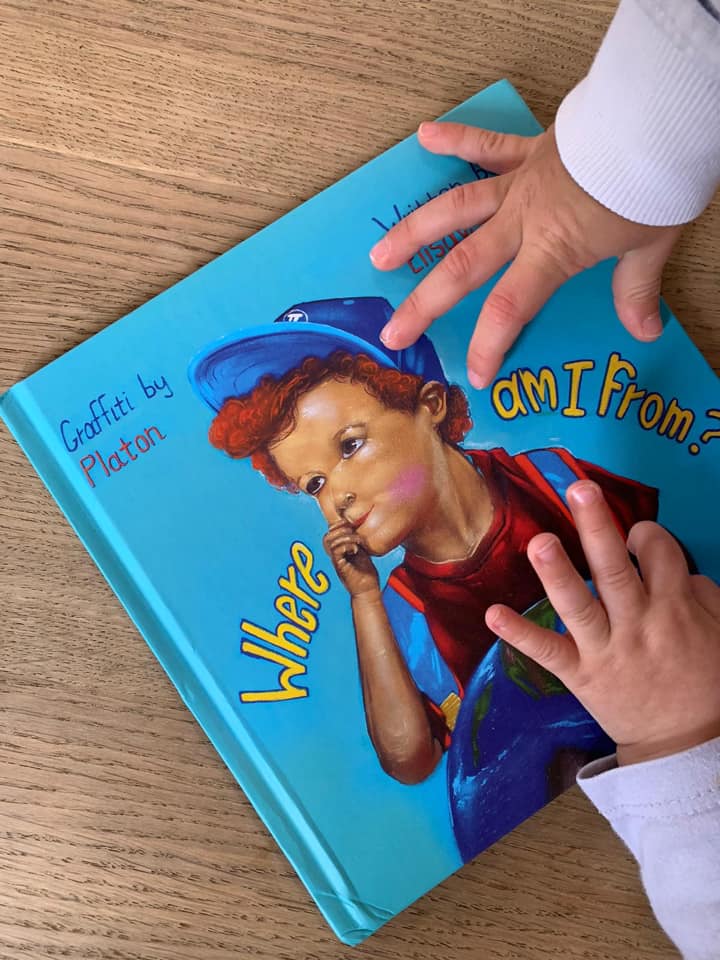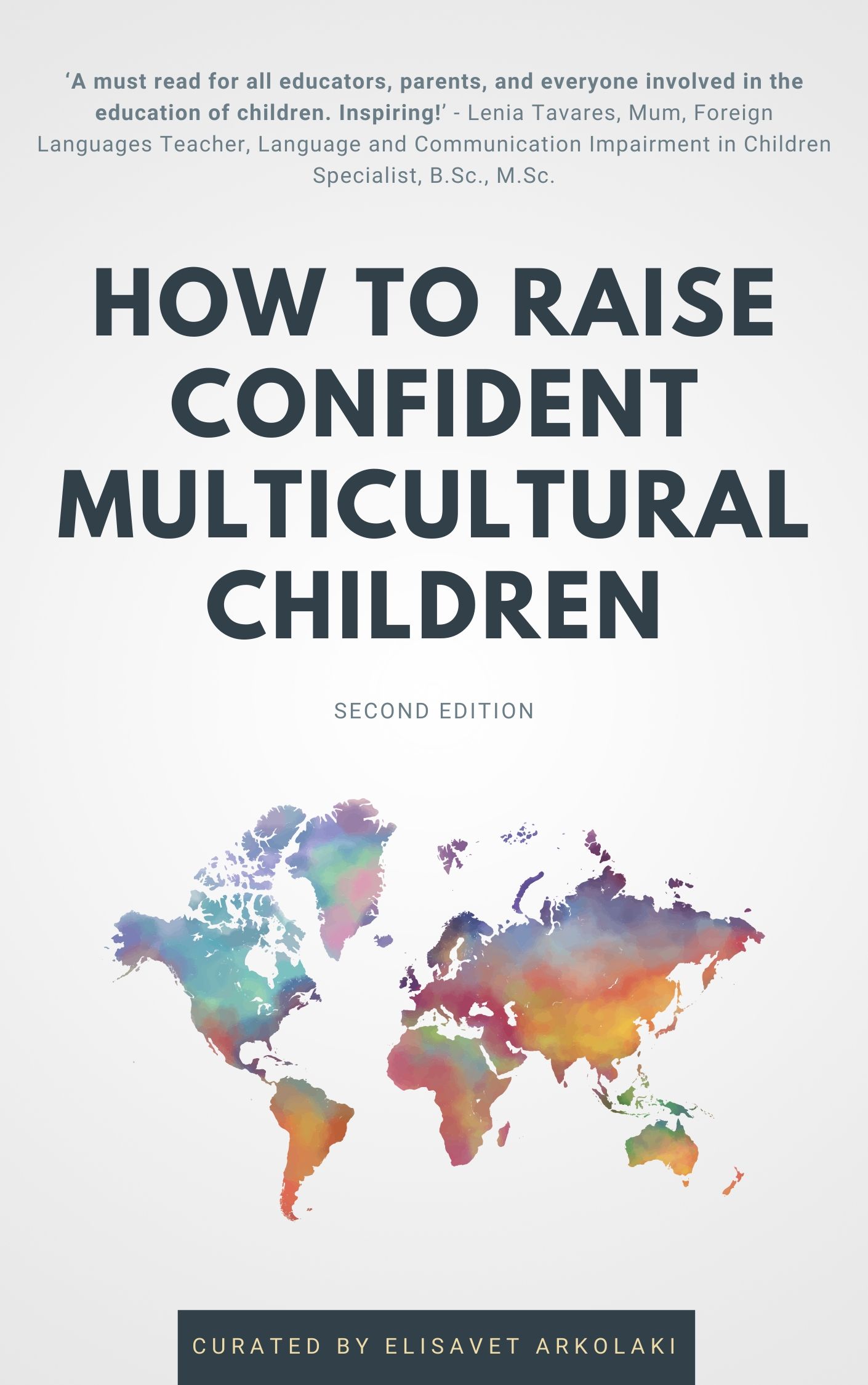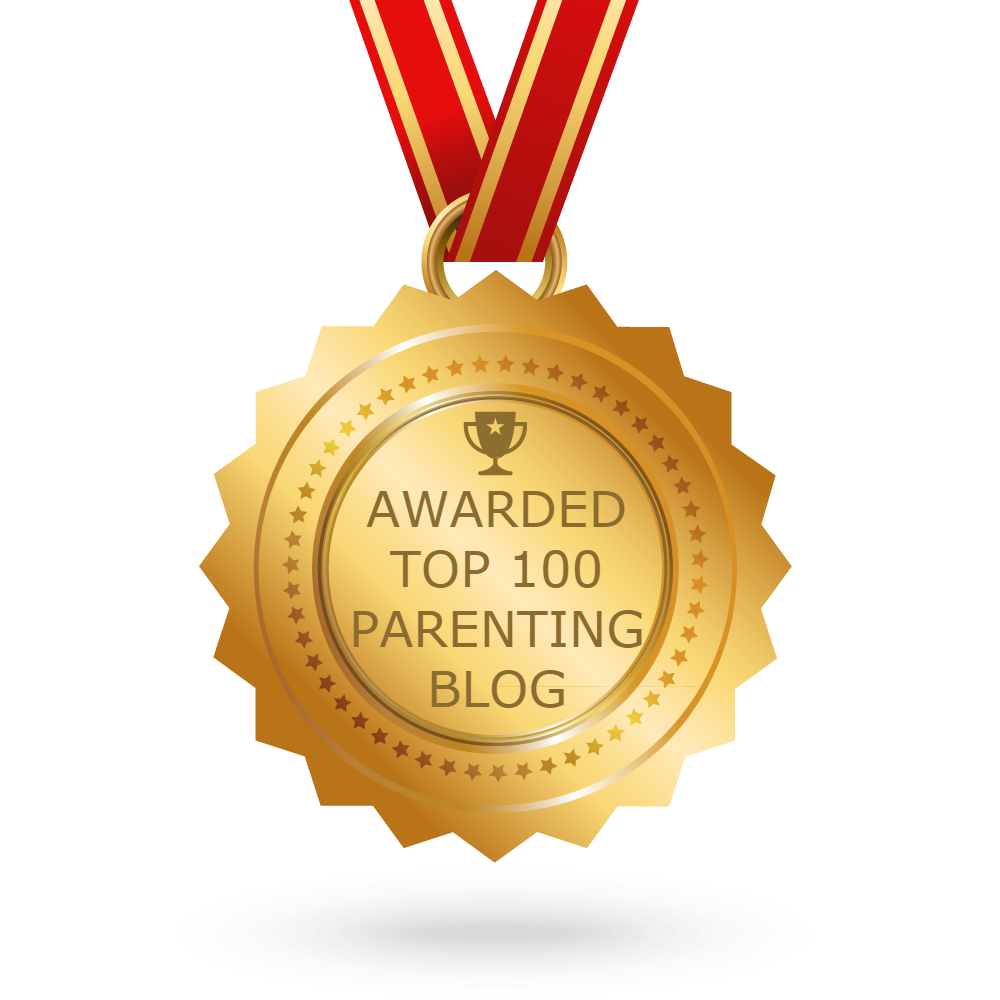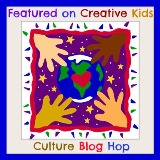Interview with the language teacher and author Yoshito Darmon-Shimamori
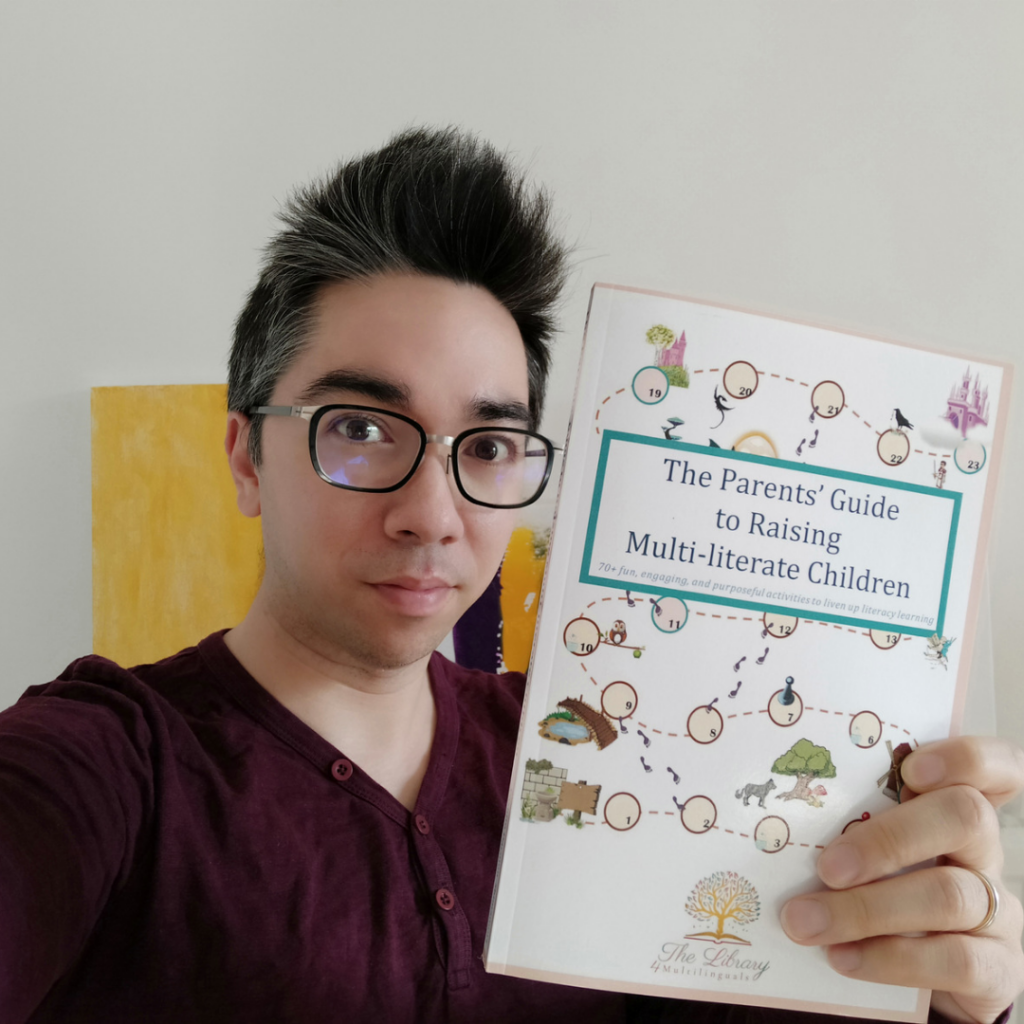
Today I’d like to introduce you to Yoshito Darmon-Shimamori, a language teacher and author who grew up bilingual French-Japanese in France, and currently lives in the UK. Yoshito’s decade-long professional experience combined with his personal bilingual journey has assisted him in teaching his trilingual sons to read and write in French and Korean (his wife’s native language). He recently published his debut book The Parents’ Guide to Raising Multi-literate Children which is all about supporting our children -and students- to learn how to read and write in their other languages.
The book includes 70+ engaging, playful, and very easy-to-do activities with everyday material we all have at home. Whoever said that learning how to read and write in more than one language is boring and a chore, definitely hasn’t read this book which I highly recommend to parents and language teachers. These games are designed to practice reading and writing in ways that will engage the children, and perfect their skills as a consequence. Yoshito seems to be an amazing educator who really understands modern, positive methods of language learning.
Let’s get to know him better.
How would you describe yourself in 10 words?
Multilingual: I became multilingual just because I was in environments that enabled it, but don’t think I am particularly good at learning languages. Speaking several languages has helped me understand how similar ideas can be expressed differently.
Multi-cultural: Growing up with the French and Japanese cultures and now living in the UK, I had the chance to appreciate different customs. I feel like this has helped me understand that the “norm” is arbitrary. I saw very early that the same situation could be seen differently depending on the cultural background.
Self-reflective: Whether it is in my personal or professional life, I like to reflect back on things – positive, or negative. I am grateful for any positive that comes my way, and try to learn from any negative experience.
Grateful: I feel lucky to be able to appreciate the good things I have in my life as it makes every day a little brighter. For example, it is silly, but I have lived the first 5 years of my life in the UK without a car. I bought one 6 years ago and still, sometimes I feel lucky I have one.
A boar: I am realising that I am quite “obsessed”. When I have an idea or an interest in mind, I start thinking only about this one thing. My mum used to tell me it was because, in the Chinese astrological signs, I am a boar (other countries refer to it as “pig”, but I like “boar” better). Apparently, when boars have a target, they go straight ahead until they reach it, without ever deviating.
Different: Being half-Japanese, I have always looked different. So I had to embrace it, and have always liked being different from the others. Liking to be different has proven very helpful in many aspects of my life.
Creative: That is probably the adjective that comes back the most when colleagues describe my work. As a teacher, what I like the most is thinking “I need my students to remember X, or to be able to do Y. What activities, done in what order, are going to make it happen?”
Resourceful: One of my childhood heroes was MacGuyver. I love having to find solutions to problems by using what I have around.
Practical: some would say “lazy”… I am very bad at keeping habits if it doesn’t serve a practical purpose. For example, I have never been able to do exercise for the sake of getting fitter or losing weight. The only way I found to include some in my daily routine was to cycle to work. This helped me integrate 90 min of daily exercise into my routine. This also really helps me understand and work out how I can motivate my sons or students to do things that are tedious.
Dreamer: Dreams make life more colourful, and give a purpose to people. I like giving myself goals starting with “It would be nice if …” and see how far my actions can get me closer to these goals. This is how I started my company The Library 4 Multilinguals: “It would be nice if every bi/multilingual child felt empowered, complete, and proud of who they are (instead of feeling that they don’t belong to this or that country/culture, etc.)” My book, The Parents’ Guide to Raising Multi-literate Children is the fruit of this thought. Being able to read and write confidently in a language plays a big role in how children “let themselves be” of a certain origin or not.
Could you explain a bit more this last thought?
Speaking a language helps us communicate with people. And this is the first step to being able to feel part of a group. As children, this might be enough, but as we grow up, a lot passes through writing (and reading). If we cannot read and write, there is all this written form of communication that we are missing. And when we are bi/multilingual, we might be able to read and write more confidently in one language than the other(s). Reading and writing also enable us to strengthen our knowledge of a language.
To cut a long story short, I wanted every bi/multilingual child to be able to read and write confidently in their home languages as well as the one used in school. Some children cannot attend supplementary schools for various reasons. It then all depends on the family’s ability to provide this teaching. So I thought that if parents wanted to teach their children to read and write in their family languages, I should provide them with a “how to” guide so they can do it confidently.
I also value a lot family time and created a Resources Pack to give a head start to parents with editable (and therefore personalisable) material, so that the preparation of activities takes even less time, and more time can be spent playing (and learning!) together.
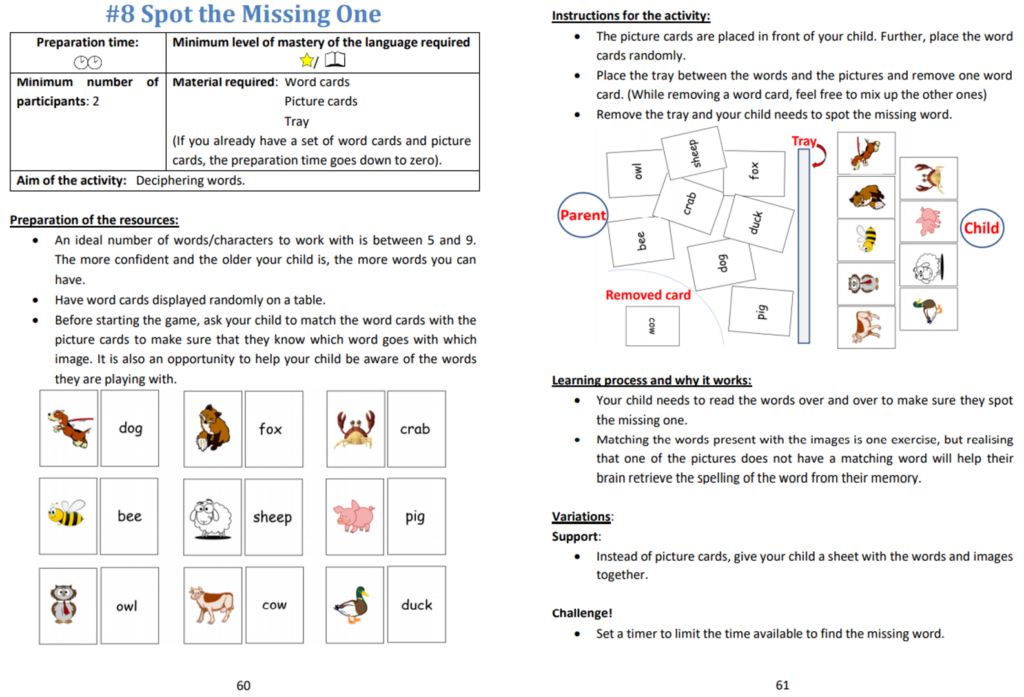
Which languages do you speak? Tell us a bit about your background growing up bilingual.
I now speak French, Japanese, English, and Spanish fluently or at a conversational level, and know a little bit of Korean. As you explained in your introduction, I grew up speaking French (with my dad, the school, and the whole community), and Japanese (mainly with my mum). I also had Japanese in my environment through cartoons (on VHS! that my aunt would record and send us), some comic books, and the supplementary school I was attending. In secondary school, I attended an International school where I had 6 hours of weekly lessons in Japanese as part of the curriculum. Until I was about 10-11 years old, my level in Japanese was actually quite good. But once I start secondary school, the gap between my level in Japanese and the average Japanese child living in Japan got bigger. I could talk well enough to follow lessons in Japanese, speak with my friends, but didn’t see the point of putting effort into learning the kanji (Chinese characters used in Japanese) as I wasn’t planning on living in Japan. (Here is the lazy/practical me again!) So reading and writing is what I struggled the most with.
How is it to raise bilingual children today vs when you were a kid?
The biggest difference is probably the internet! It allows easier access to resources and people. YouTube is amazing to have access to cartoons and films in your home language. There are many people now creating resources to support bi/multilingual families around the world. And the internet is making these resources available worldwide. Social media has enabled parents to connect, support, and help each other. There are some very supportive groups on Facebook and amazing accounts on Instagram. Connecting with other people on the same journey is so important, especially when we are struggling! (You can follow me on Instagram @multilingual_dad) And of course, video calls have brought families closer! As a child, I only saw my Japanese family once every second year, and we would exchange letters on important dates. Phone calls were so expensive that they were extremely rare, and when we spoke we were always rushed so that the phone bill didn’t blow up! Now we can see and hear each other every day for virtually free!
What would you advise to parents who’d like their kids to become biliterate and not just bilingual?
I would say “See the language as a tool. Speaking enables our children to connect with more people, to make more friends, to keep in touch with the family. Reading and writing should be seen as a way to access more books to be transported into many more amazing adventures. Please, DO NOT present reading and writing as a tedious task, something hard but necessary. And before thinking to teach your child to read and write specifically in your home language(s), focus on helping them develop a love for reading and writing, no matter the language”.
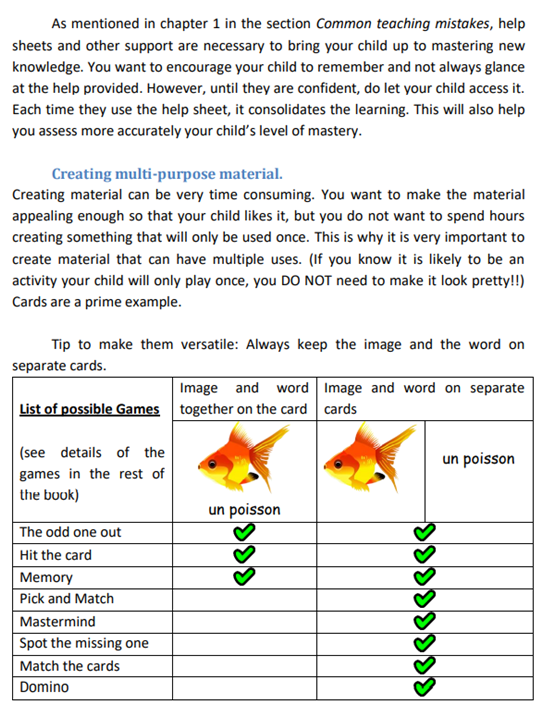
What do you wish that parents will take out of your book?
To help a child become biliterate, you cannot just focus on the technique. You have to take into account the emotional aspect of learning. So please pick here and there activities that your child will enjoy to practise reading and writing, but make sure you read carefully the first chapter, and read it again from time to time as a reminder. This chapter deals with the emotional side of learning a home language. It is only 10 pages long but is as important as the other 223 pages of the book combined. If you don’t take care of the emotional side, no matter the techniques your child won’t learn as well. (NOTE: you can download the 1st chapter for free here!)
Tell us about your proudest achievement.
My proudest achievement is to have helped my eldest (now 8 years old) become a bookworm! Currently in English and French, but Korean is on its way to. As a child, I couldn’t understand how some children could devour books, and find pleasure in reading. Even now, given the choice between a paper book and an audiobook, I will choose the audio one. I do love stories, but reading is an effort for me. As an adult, I saw how much I have missed out on, and from the moment I knew I was going to be a dad, I wanted to make sure my children would know and experience the magic of books!
Both my parents were bookworms, so they showed me how much they loved books. But showing isn’t enough. Our children need to experience being transported into magical adventures with you first to start loving books.
What was your greatest failure and what did you learn from that?
I love the way you are asking this question! I also believe that failures are only failures if we let them be that way. They can also be the greatest lessons we’ll learn! My biggest failure was not to learn properly to read and write in Japanese when I was in secondary school. It has taught me a lot about teaching a child to read and write in their home language(s). One major lesson I took was that teaching a child to read and write in a minority language wasn’t the same as doing so in the majority language (which I explain in the first chapter). I have also experienced the importance of involving emotionally a child for them to learn. I now do my best to have this in mind when I teach my students and my sons.
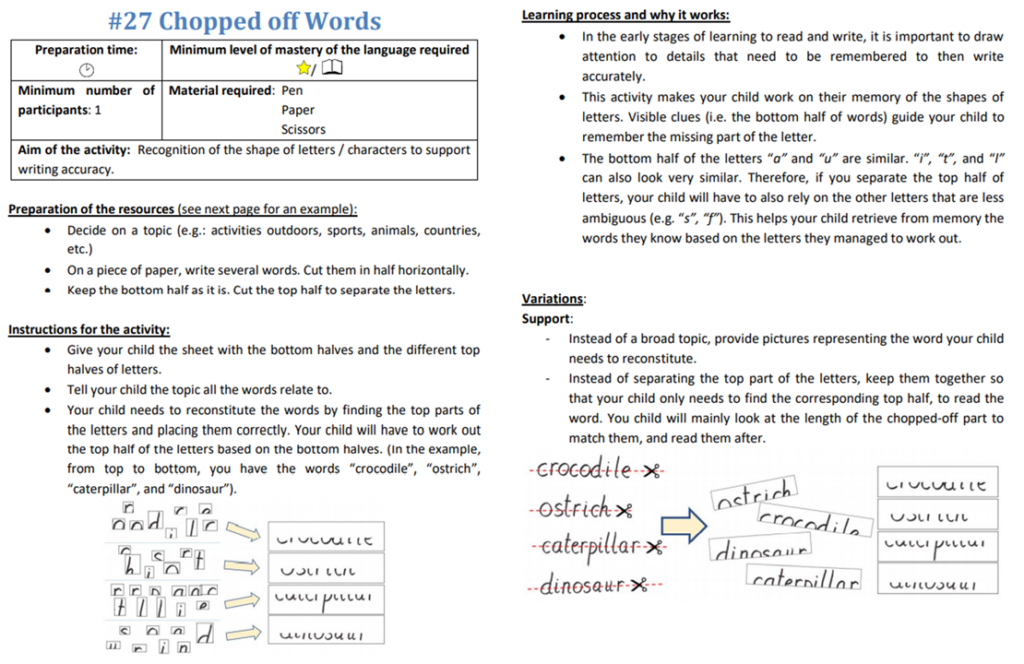
Who do you admire the most and why?
Not an original answer, but my mum is the person I admire the most. In the 1970s, she wanted to go and live in France (she was then living in Japan). Her parents were against it as France was on the other side of the world, and as a woman, it was dangerous. My granddad also didn’t see the point as she was a woman and a woman’s role was to find a good husband and have a family. So she worked two jobs to save up enough to go to France and live without having to work for a couple of years. After that, even my granddad couldn’t tell her to stay.
When my parents divorced, she again worked 2 jobs and took care of my brother and I. With a few other families, they founded a Japanese section in the international school I was consequently able to attend. And when the only thing missing to open the section was an extra teacher they couldn’t hire because of a lack of budget, she worked there a few hours a week for free for several years (that was a 3rd job!) Note that she was a university professor and had the qualifications to do the job, and she was one of the few teachers who understood the difference between teaching a home language and a community language, and how to make it interesting. I have learnt a lot from her and the few other teachers in this respect.
My mum is really the embodiment of doing whatever it takes for your dreams and your family. Having such a model growing up definitely gave me the strength to believe in my own dreams and doing what I can to achieve them. One of them is what I aim to accomplish with The Library 4 Multilinguals.
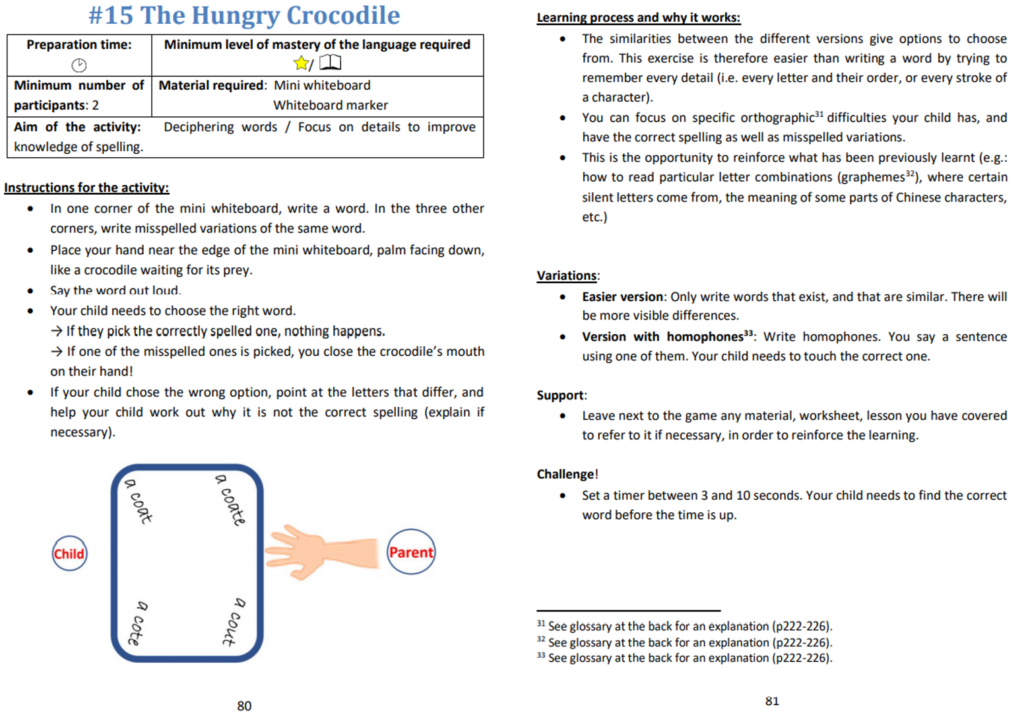
If you could travel back in time and give advice to your teenage self what would that be?
Life is tough right now. You’ll have many challenges yet to come, and you will fail a lot. But all of that will make you who you are. What you consider being failures will turn out to be great lessons for your future. So be grateful for what life gives you, and learn from your failures. It doesn’t mean you can’t be sad. Be sad, but then look back on those events, and try to figure out the positive you can take out of the negative.
If you could know the absolute and total truth to one question, what question would you ask?
I don’t think I need to know the total truth to anything … at least, right now.
What is the funniest thing that has happened to you recently?
My sons are currently in a phase where they love words such as “poo(p)”, “fart”, “willy”, etc. The other day, I was coming back from the park by car, my sons had their windows open. And as we were getting closer to our garage gate, my eldest shouted a bit too loudly “POOP HEAD”. It wasn’t aimed at anyone, but our neighbour was just there. He turned around probably wondering who had insulted him. As he looked in our direction, I was very embarrassed, and I think my son was scared. But then our neighbour burst out laughing! My sons and I laughed out loud too, but more from relief than anything else.
What is your vision? Where do you see yourself in 5 years from now?
I want to help as many multilingual families, and especially multilingual teenagers to feel proud of their origins and everything that being multilingual and multi-cultural offers them. I want to achieve that in various ways.
Firstly, through my books. The Parents’ Guide to Raising Multi-literate Children, is just the first one. I have ideas for a few other books – one of them I am currently working on. It is going to be a book aimed at pre-teens and teens to embrace their multilingualism and multi-culturalism. I named my company The Library 4 Multilinguals for two reasons. First, I wanted to help multilingual children read in multiple languages, and therefore have a multilingual library at home they could fully access. Second, I want to write books that could be in these libraries.
Then, as teaching is my speciality, I would love to work with supplementary schools and support them in designing curriculums that are in sync with their students’ linguistic circumstances. If anyone working in or with supplementary schools would like to get in touch, feel free to email me at contact@library4multilinguals.com
Thirdly, a good friend of mine (Dr Ute Limacher-Riebold) often says: “It takes a multilingual village to raise a multilingual child”. I would love to join forces with others in the multilingual parenting field to help spread information and support to multilingual families across the globe. You and I are both currently doing it by being part of the PEaCH project, and I hope many other opportunities for collaboration arise in the future.
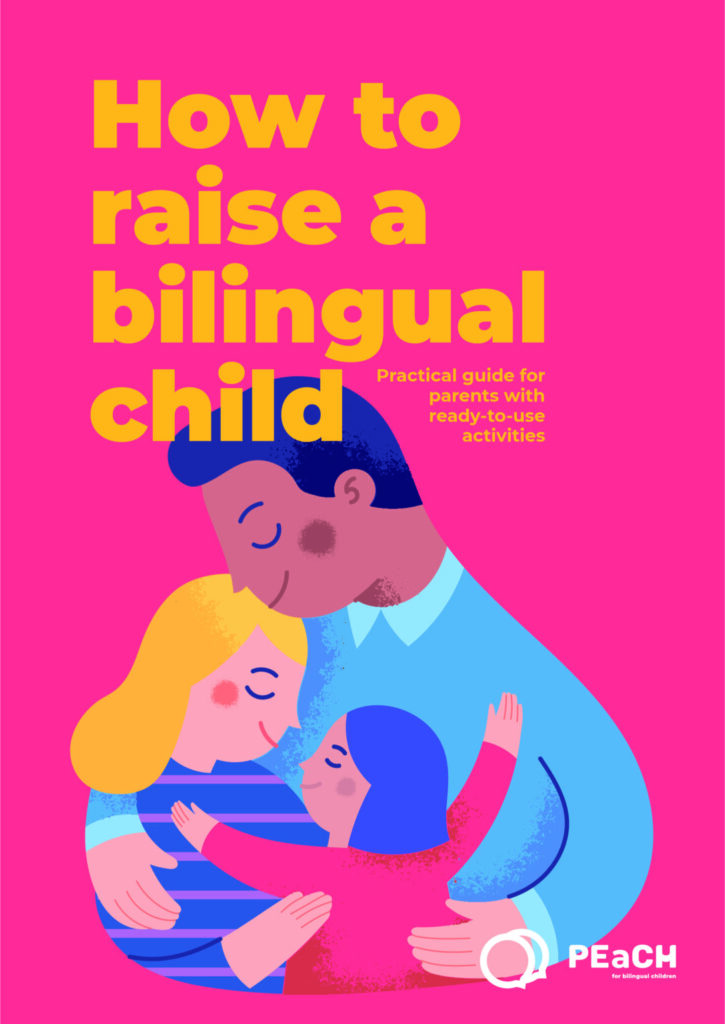
How can the readers get in touch with you and where can they find your books?
The two main places they can contact me online are through my Instagram account @multilingual_dad, or by email contact@library4multilinguals.com My book is available on every Amazon online store, worldwide.
Category: Interviews
